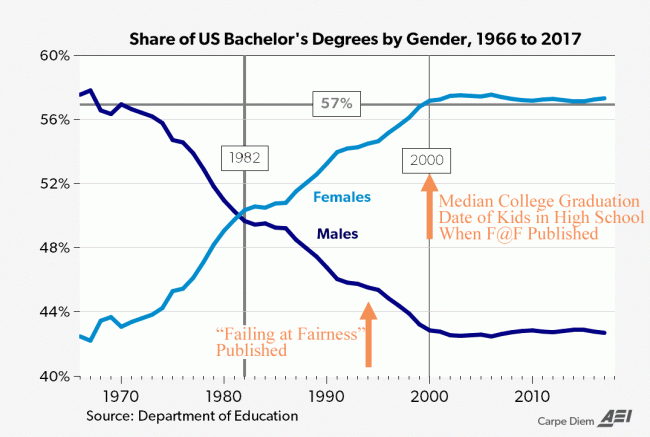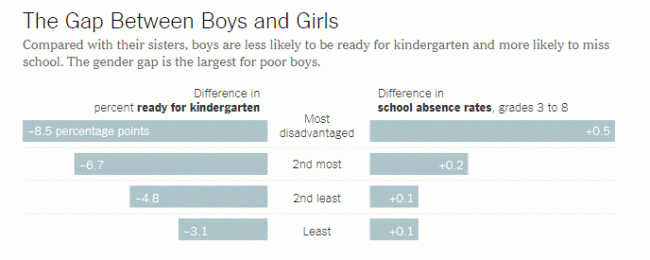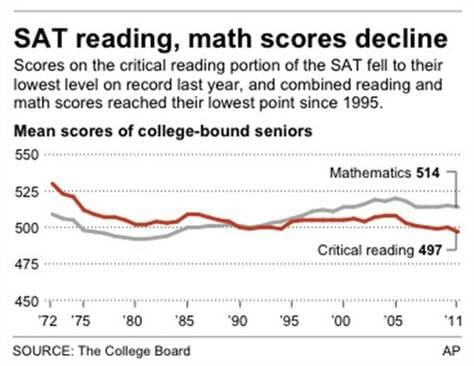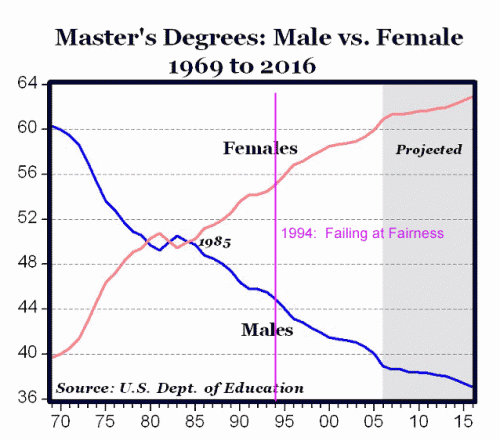Whether You Are "Allowed" To Discuss Genetic Variability Depends on Which Group You Are Studying
Quillette had an interesting article about a scientific paper, that was mostly a presentation of math and statistical tools, that was essentially suppressed, apparently because it does not fit with current social justice talking points.
In the highly controversial area of human intelligence, the ‘Greater Male Variability Hypothesis’ (GMVH) asserts that there are more idiots and more geniuses among men than among women. Darwin’s research on evolution in the nineteenth century found that, although there are many exceptions for specific traits and species, there is generally more variability in males than in females of the same species throughout the animal kingdom.
Evidence for this hypothesis is fairly robust and has been reported in species ranging from adders and sockeye salmon to wasps and orangutans, as well as humans. Multiple studies have found that boys and men are over-represented at both the high and low ends of the distributions in categories ranging from birth weight and brain structures and 60-meter dash times to reading and mathematics test scores. There are significantly more men than women, for example, among Nobel laureates, music composers, and chess champions—and also among homeless people, suicide victims, and federal prison inmates.
I am not an expert on this and don't really take a position on whether this is truly genetics or nurture, but it does tend to explain a lot of phenomena, like the distribution of boys vs. girls math SAT scores.
But some feminists and SJW's are deeply, deeply invested in the hypothesis that differences in representation of men vs. women in the top tiers of anything are entirely due to misogyny and patriarchy and other bad cultural and societal things (not sure how they explain disproportionate numbers of men in the bottom of distributions). So a partial genetic explanation is not going to make them happy. So:
But, that same day, the Mathematical Intelligencer’s editor-in-chief Marjorie Senechal notified us that, with “deep regret,” she was rescinding her previous acceptance of our paper. “Several colleagues,” she wrote, had warned her that publication would provoke “extremely strong reactions” and there existed a “very real possibility that the right-wing media may pick this up and hype it internationally.” For the second time in a single day I was left flabbergasted. Working mathematicians are usually thrilled if even five people in the world read our latest article. Now some progressive faction was worried that a fairly straightforward logical argument about male variability might encourage the conservative press to actually read and cite a science paper?
In my 40 years of publishing research papers I had never heard of the rejection of an already-accepted paper. And so I emailed Professor Senechal. She replied that she had received no criticisms on scientific grounds and that her decision to rescind was entirely about the reaction she feared our paper would elicit. By way of further explanation, Senechal even compared our paper to the Confederate statues that had recently been removed from the courthouse lawn in Lexington, Kentucky.
The interesting part to me is that I have heard a parallel theory of greater genetic variability applied to Africans, though from a different cause. Rather than being a selectivity phenomenon, it is argued that because Africa is likely the original birthplace of humanity, every other group of people was started by essentially an African splinter group, made up of just a portion of the range of African genetics. Thus on a global basis Africans should be disproportionately in the extremes -- tallest and shortest, smartest and dimmest, fastest and slowest, etc.
Interestingly (and I admit I am not active in this field so I may be missing something here) the general reaction to this seems to be almost celebratory -- look at all this genetic diversity, to go along with the cultural diversity, in Africa!



